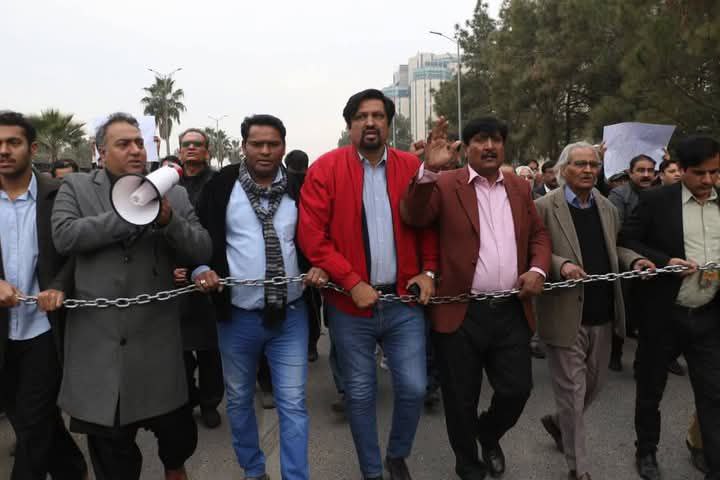On January 23, 2025, the National Assembly of Pakistan passed the Prevention of Electronic Crimes (Amendment) Bill, 2025 (PECA), which aims to address issues related to cybercrime and the spread of disinformation. This legislation introduces several significant changes to the existing legal framework:
Key provisions of the PECA 2025 amendment:
Criminalisation of "fake news":
The law defines and punishes the intentional dissemination of false information that could cause public fear, panic or disorder. Offenders face up to three years in prison, a fine of up to 2 million Pakistani rupees (PKR), or both.
Establishment of regulatory bodies:
- Office of Social Media Protection and Regulation: This newly created body will oversee social media platforms, protect users' rights and regulate online content. It has the power to block or remove material deemed harmful, offensive or contrary to Pakistan's ideology.
- Social Media Complaints Council: This body is supposed to handle complaints about online content and close cases within 90 days.
Mandatory social media registration:
Social media platforms must register with the government and comply with the conditions set out. Failure to comply can lead to fines or bans.
Banning the broadcast of deleted parliamentary proceedings:
The amendment restricts the possibility of broadcasting or streaming parliamentary sessions, which have been officially deleted.
Establishment of the National Cybercrime Investigation Agency:
The law proposes the creation of a National Cybercrime Investigation Agency, which will take over the tasks previously performed by the cyber wing of the Federal Investigation Agency (FIA). This agency will focus on investigating illegal activities on social media and other online platforms.

Reactions from the public and organisations:
The introduction of the PECA amendment has generated considerable debate:
- Support: Proponents argue that the law is necessary to combat the spread of fake news and regulate social media abuse, thereby helping to maintain public order.
- Opposition: Critics, including journalists, human rights organisations and opposition parties, argue that broad definitions and harsh punishments can stifle freedom of expression and be used to silence opposition voices. The Human Rights Commission of Pakistan (HRCP) expressed serious concerns and warned that the legislation could be used to persecute political activists, journalists and human rights defenders.
As the law progresses, it is crucial to strike a balance between combating cybercrime and disinformation and protecting fundamental rights so that the measures taken do not become an instrument of censorship.
The impact of PECA on journalists
The amendment to the Electronic Crimes Prevention Act has major implications for the work of journalists, both positive and negative.
Negative impacts:
- A chilling effect on freedom of expression:
The law criminalizes "fake news" and "defamation", but vague definitions of these terms can lead to self-censorship among journalists. Many may avoid reporting on sensitive topics for fear of legal repercussions or arrest. - Risk of abuse for political purposes:
The law has been criticized for its potential to be used to silence the opposition. Journalists who report on government failures or expose corruption could be accused of spreading "false information" and face harassment or intimidation. - Increased surveillance:
Mandatory social media registration and stricter monitoring may lead to monitoring of journalists' online activities. This raises privacy concerns and may discourage investigative journalism. - The threat of severe penalties:
Punishments such as prison or heavy fines for disinformation put journalists under considerable pressure. Even unintentional mistakes can have serious consequences, undermining independent reporting. - Self-censorship:
For fear of reprisals, journalists might shy away from critical topics and investigative articles that are key to informing the public.
Positive impacts (potential benefits):
- Fighting disinformation:
The amendment aims to curb the spread of fake news, which could contribute to a more trustworthy and reliable information ecosystem. However, the success of this effort depends on fair and impartial enforcement. - Legal framework for cybercrime:
The amendment provides a legal framework to combat cyberbullying, online threats and attacks on journalists. If applied fairly, the law could increase the safety of journalists in the digital space.

Overall concern:
Journalists and media organisations warn that the law's vague wording and harsh penalties could undermine press freedom. There are growing calls for amendments to the law to ensure that it is not used as a tool of censorship or repression. Journalists are calling for clearer definitions and safeguards to protect freedom of expression, while at the same time recognising the need to address disinformation and cybercrime.
This debate highlights the need for a balanced approach that ensures accountability without compromising the rights of journalists to report freely and without fear.
Zaheer Alam
President of the Pakistan Journalists Association




1 comment
E2Bet
Blog Comment: If you're a cricket fan in Pakistan, E2Bet is the platform for you.
They cover all major tournaments with detailed betting options.
My go-to website for cricket betting!